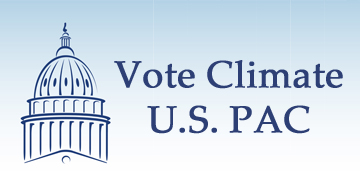Much to my surprise, I make a cameo appearance in Michael Moore's latest film, Planet of the Humans, directed by Jeff Gibbs. The clip is from my original TV show at the time, Climate Challenge TV, where I challenged Bill McKibben on the question of who funds his organization 350.org. As a result, I feel compelled to share my views on the documentary, starting with my belief that McKibben, while less than forthcoming about his donors in my interview, has made extensive contributions to the advancement of the climate movement, for which he deserves great credit.
I started out excited to watch Planet of the Humans. At the beginning, I told my son, there was one thing I wanted from the film: If renewable energy was not the answer, what were their concrete ideas for slowing climate change? Moore and Gibbs deserve great credit for exposing the downside of wind and solar energy: that the machinery is made of petrochemicals; the lifetime of the equipment is short; there is inadequate storage currently which is still, often dependent upon fossil fuels to deliver energy to meet demand. Granted, these things need to change, but let's not throw the wind turbine out with mountaintop removal coal mining.
The film provides valuable information on the senseless, unacceptable destruction of forests for biofuels and biomass energy. No such plant should be a part of the U.S. power grid. The movie brought the profit motive of the national environmental movement, and the corruption that sometimes follows, into sharper focus, and according to the end credits, forced some important changes.
Still, I was mightily disappointed in the film's lack of concrete solutions. I agree that the current state of renewable energy production and storage has a way to go. But let's remember that the technology is in its infancy and making progress. There is a vague suggestion in the documentary, that the problem is the racist-tinged, overpopulation issue and excessive consumption. No doubt there is some truth to that, but in the end of the film, that notion is left lying on the table as yet another, unsolved problem.
I completely agree with the film's assertion that "Infinite growth on a finite planet is suicide." But in the final analysis, the narrator says, "I truly believe that the path to change comes from awareness. That awareness alone can begin to create transformation"If we get ourselves under control, all things are possible." Huh?! So we're all supposed to meditate our way out of this climate emergency and everything will be fine if we simply exercise self control?
That final suggestion, the film's ultimate proposal for how we move forward is irresponsible. They even suggest that carbon dioxide in the atmosphere, in fact climate change itself is not the problem, saying, "And instead of climate change, we must at long last accept that it's not the carbon dioxide molecule destroying the planet, it's us." Yes, humans are driving climate change, but make no mistake, climate change is likely the most serious challenge humanity has ever faced. The suggestion to the contrary is stimulating climate change deniers in their frenzy to discredit legitimate action.
In full disclosure, since my TV show, I founded Vote Climate U.S. PAC a small, low-budget, mostly volunteer organization, currently funded by individual donations. We have no corporate or billionaire funders. Vote Climate U.S. PAC works to elect candidates to get off fossil fuels, transition to clean, renewable energy and reduce carbon pollution by putting a fee on carbon, in order to slow climate change and related weather extremes. Our mission is concrete and I think it is our best chance at survival in the short-term.
Vote Climate U.S. PAC's most consequential project is our national, climate change voter's guide in which we rate every incumbent and challenger for the U.S. Presidency, U.S. House and U.S. Senate, providing a climate calculation that voters can use to elect climate-action candidates. We are currently researching our 2020 voter's guide, which is coming in September.
(Note: You can view every article as one long page if you sign up as an Advocate Member, or higher).






